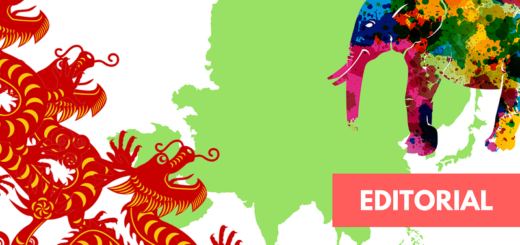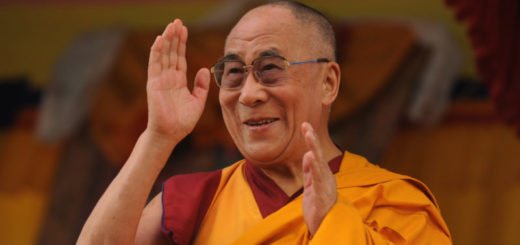Political Crisis in Venezuela | Decoding Political Unrest in Latin America
As a major producer of oil and natural gas, with massive untapped reserves, Venezuela has enormous potential to attract investment with Russia recently securing gas exploration rights at two Venezuelan fields. Yet, political instability always has the potential to either disrupt production or dissuade investment.Venezuela’s Deepening Political Crisis. – Dr Sanjay Badri Maharaj*
In the last week of 2017, Venezuela found itself involved in two major diplomatic spats – with Canada and Brazil – which saw the expulsion of Canada’s charge d’affairs in Venezuela, the Venezuelan charge d’affairs in Canada declared persona non grata, the expulsion of the Brazilian Ambassador to Venezuela and the retaliatory Brazilian expulsion of the Venezuelan Ambassador to Brazil. Coming on the heels of Venezuelan President Nicholas Maduro disqualifying the main opposition parties from the 2018 Presidential elections following their boycott of mayoral polls, Venezuela’s political morass has worsened substantially in 2017.
The Roots of the Crisis
Venezuela’s political unrest has its roots in two related but nonetheless somewhat separate events. The first of these was the collapse in international oil prices from their peak which indirectly led to the Opposition winning Parliamentary elections in 2015. Following this electoral setback, the Maduro government has spared little effort in marginalizing the Opposition through a combination of legal and electoral measures which has enabled the current government to have a de facto monopoly over constitutional entities.
The Hazards of an Oil Dependent Economy
Venezuela is one of the world’s largest oil producers – for example, as late as 2015-2016 it was India’s third largest supplier of crude oil – and, like many such countries, had an economy heavily dependent on global oil prices. Oil accounts for 90 percent of the country’s exports and half of the government’s revenue. As such, the economy is highly vulnerable to fluctuations in oil prices especially if steps are not taken to bolster and secure foreign exchange reserves. Under the Presidency of the late Hugo Chavez (1999 to 2013), oil prices hovered near record highs, often exceeding USD 100 per barrel. Since 2015, however, oil prices have plummeted with devastating consequences for Venezuela’s economy. Despite a not insignificant recovery in prices from their recent lows, prices are nowhere near their record high which only exacerbates Venezuela’s economic difficulties.
Venezuela’s economic decline has been nothing short of catastrophic. The economy shrank at a rate of eight percent in 2016 and, by the end of 2017, will be 23 percent smaller than it was in 2013. In addition, the inflation rate has soared to a staggering 4000% while unemployment exceeds 17 percent and is approaching 20. There are extensive shortages of medicines and the ability of many wage-earners to buy food is doubtful. For the first time in many years, extensive malnutrition, and a substantial number child deaths arising therefrom are being noticed in Venezuela’s public hospitals. Infant mortality has increased a hundred-fold and maternal mortality has increased five-fold between 2012 and 2015.

Graph representing Venezuela annual Inflation during 2013-2017 and IMF projection for 2018
President Maduro’s predecessor, Hugo Chavez, was a self-styled socialist and his economic policies were geared towards addressing the high degree of economic inequality in Venezuela. His policies undoubtedly had a positive effect with healthcare and food being heavily subsidized, contributing to a two-thirds decline in poverty by 2010. These programmes, while sustainable when government revenues were abundant, became far less workable once oil prices fell.
In large part, the problems of declining revenue were exacerbated by the government expropriating the assets of many private companies. This effectively destroyed the manufacturing sector and made domestic production uneconomical. Imports filled this void – sustainable when oil prices were high but problematic when prices fell. The government now controls at least 511 businesses with 70 percent of these losing money, further contributing to the economic crisis. This inefficiency has been accompanied by rampant corruption. The state-run oil monopoly – Petroleos de Venezuela (PDVA) – is both bloated and corrupt. A probe by the National Assembly in 2016 suggested that as much as USD 11 billion had gone missing.
The Sanctions Canard
The Maduro government has sought to blame both US sanctions against top officials and “right-wing” business sabotage for the economic plight facing Venezuelans. This rhetoric only intensified after the incoming Trump Administration imposed sanctions on more top officials. However, sanctions, even when intensified and strengthened have not targeted Venezuela’s economy in a systematic manner nor has demand for Venezuelan oil been in any way affected.

John Kerry meets Nicolas Maduro | Image credits: Reuters
Sanctions have had little to do with the chronic food shortages. These might be partially attributed to price controls which made smuggling a lucrative option – goods being smuggled across the Colombian border to fetch higher prices – while others have noted that the Venezuelan military and government have been profiteering through an elaborate system of kickbacks for food import licenses.
Institutions Undermined
National Assembly elections held on 6 December 2015, handed opposition forces a two-thirds “supermajority” in the National Assembly. Following that defeat, Maduro has systematically sought to undermine the authority of the National Assembly. Barely a week after those elections, Maduro created the National Constituent Assembly on 15 December 2015 with elections to be held subsequently.
On 29 March 2017, the country’s Supreme Tribunal of Justice (Tribunal Supremo de Justicia – TSJ), which was controlled by the Chavista supporters of Maduro attempted to usurp the powers of the National Assembly and even dissolve it. After intense protests, the TSJ was forced to rescind its decision on 1 April 2017. The TSJ was the product of a successful attempt by the Chavez administration to re-write the constitution in 1999. While its processes and independence are supposedly guaranteed by Article 264 of the Constitution of the Bolivarian Republic of Venezuela and by Article V of the Organic Law of the Supreme Court (LOTSJ), concerns have been raised that the Maduro government has disregarded these safeguards and staffed the TSJ with his supporters.
The Venezuelan armed forces have also been subverted with several senior officers being removed in the wake of an abortive coup against Chavez in 2002. President Maduro further co-opted the military by placing military officers in charge of food distribution to new oil and mining projects. In addition, of the 32 members of the Maduro Cabinet, 13 are from the military, and of the 20 “Chavista” governors 11 are military personnel. In this way, Maduro has to a large extent insulated himself from any military coup. Any efforts in this regard will need to be spearheaded by the so-called “Comacates” – junior and mid-level officers ranging from Lieutenants to Colonels – who have not benefitted from the largesse to the extent of their seniors. However, at present, the military appears to be substantially loyal to the Maduro government.
The Opposition Marginalized and Neutralized
On 30 July 2017, Venezuelan President Nicolas Maduro claimed “victory” in an election to create a Constituent Assembly. The hitherto reliable National Electoral Council claimed that a total of 8,089,230 persons voted in the election – a 41.53 percent turnout. The credibility of this statement was dealt a severe blow when Antonio Mugica, the CEO of Smartmatic, the firm that provided the electoral voting machines indicated that the turnout figures had been tampered with. An attempt by the Chief Prosecutor to delay the inauguration of the Constituent Assembly pending an investigation failed, with the Chief Prosecutor being dismissed from her post.
The National Constituent Assembly has the power to re-write the country’s constitution, effectively neutralizing the National Assembly. In November 2017, the Constituent Assembly passed a law which purportedly aimed to punish messages of hate in broadcast and social media and also prohibits opposition political parties that fail comply with the Assembly’s anti-hate law from registering National Electoral Council. This is a thinly disguised attempt to muzzle any media supporting the opposition, although, to date, there is still a significant anti-government presence in the print media.

Opposition demonstrators take part in a women’s rally against Nicolas Maduro’s government in San Cristoba.The banner reads: “Resistance”. REUTERS/Carlos Garcia Rawlins
While legal, constitutional and democratic institutions have been undermined, Maduro’s efforts have been aided by a divided and confused Opposition. The boycott of mayoral polls proved to be counter-productive with the government being able to exclude such parties from contesting the Presidential elections. This has exacerbated division within the Opposition, with some arguing that boycotts simply give Maduro easy victories. The Opposition has also suffers from a lack of credible and coherent leadership. Leopoldo Lopez has been imprisoned, Henrique Capriles has been preventing from running for office and two prominent leaders – Freddy Guevara and Antonio Ledezama – are in exile in Chile and Spain respectively. In addition to its leadership dilemma, the Opposition must also content with the deeply divided nature of Venezuelan society where the socialist agenda of Hugo Chavez did provide many poor Venezuelans with an improved standard of living. Admittedly, these divisions will have much less resonance in an atmosphere where food shortages and economic decline dominate the discourse.
Conclusion
Venezuela’s political travails are of broader regional concern with the prospect of economic refugees from the country being of particular worry to neighbouring Latin American and Caribbean countries. As a major producer of oil and natural gas, with massive untapped reserves, Venezuela has enormous potential to attract investment with Russia recently securing gas exploration rights at two Venezuelan fields. Yet, political instability always has the potential to either disrupt production or dissuade investment.
The Maduro regime and the Opposition are locked in an uneven struggle with the former having the upper-hand. International pressure has been of no avail to date and Maduro is intent on securing and strengthening his ties with countries that support him – Russia being a prime example – and the Maduro regime seems content to try to weather the internal political storm, helped by miscalculations by the Opposition and subverted institutions. It is difficult to predict how the current political crisis will end or whether it will end peacefully or with greater violence. Political crises and economic collapse do not bode well for either the security or stability of Venezuela with possible consequences for the wider region.

*Dr Sanjay Badri-Maharaj was a Visiting Fellow at IDSA. He is an independent defence analyst and attorney-at-law based in Trinidad and Tobago. He holds a PhD on India’s nuclear weapons programme and an MA from the Department of War Studies, Kings College London. He has served as a consultant to the Trinidad and Tobago Ministry of National Security
The views and opinions expressed in this article are those of the authors and do not necessarily reflect the views of The Kootneeti Team.
Also, read The Kootneeti Editorial on Venezuela: What is behind the Crisis? Part of Pentagon politics?


















